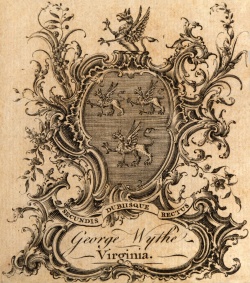Difference between revisions of "Office and Duty of Executors"
(Summary paragraphs by Melanie Lazor.) |
|||
| Line 20: | Line 20: | ||
}} | }} | ||
London: 1689. | London: 1689. | ||
| + | |||
| + | [https://en.wikipedia.org/wiki/Thomas_Wentworth_%28Recorder_of_Oxford%29 Thomas Wentworth] (1567/8-1628), was a lawyer and politician, and the son of Peter Wentworth, the Elizabethan parliamentarian.<ref>Maija Jansson, "[http://www.oxforddnb.com/view/article/29055 Wentworth, Thomas (1567/8-1628)]," ''Oxford Dictionary of National Biography'' (Oxford University Press, 2004-), accessed on February 20, 2015.</ref> Wentworth attended University College, Oxford in 1584; and in 1585, he entered [https://en.wikipedia.org/wiki/Lincoln%27s_Inn Lincoln’s Inn], where he was appointed Lent reader in 1612 and treasurer in 1621.<ref>Ibid.</ref> Wentworth married into a puritan family, and puritanism remained a central theme throughout his life and parliamentary career.<ref>Ibid.</ref> Wentworth was outspoken against crown policy, including being opposed to the proposed act of union with Scotland. Wentworth also believed the law was superior to the king, saying, "If the King have a power over the laws, we cannot have security, therefore we must see if the law can bind the King."<ref>Ibid.</ref> King James wished to punish Wentworth for his speeches, but was dissuaded at the time by the Privy Council.<ref>Ibid.</ref> Wentworth was finally imprisoned in the [https://en.wikipedia.org/wiki/Tower Tower] in 1614, justified by the King by claiming Wentworth had offended the French ambassador, after a speech arguing against impositions.<ref>Ibid.</ref> He asserted "that in all ages the King’s prerogative…hathe bene examined and debated in Parliament."<ref>Harold Hulme, "The Winning of Freedom of Speech by the House of Commons," ''The American Historical Review'' 61, no. 4 (Jul. 1956): 832.</ref> He further opposed Spanish marriage for the King, arguing that a catholic queen would be problematic, and wanted a protestant wife to ensure protestant succession. Wentworth died in March or April 1628 in Henley.<ref>Jansson, "Wenthworth, Thomas (1567/8-1628)."</ref><br /> | ||
| + | <br /> | ||
| + | ''The Office and Duty of Executors'', assigned to Wentworth, is a book directed at both testators and executors in the course of their duties. Wentworth, in the preface, felt that there was little that was more important and useful than to understand the laws and duties of the office of executors.<ref>Thomas Wentworth, ''[https://archive.org/details/officedutyofexec00went The Office and Duty of Executors]'' (London: Printed by John Streater, James Flesher, and Henry Twyford, assigns of Richard Atkyns and Edward Atkyns, Esquires, 1668), Preface, paragraph 11.</ref> Wentworth says there are three parts necessary to understand this law: (1) their being, or its creation, (2) their having, or the interest or possession, and (3) their doing, which is the focus of the work, or the managing and execution of the executor’s office. Wentworth emphasizes the need to go through all three parts to understand the law, using an analogy to a trip, where you must pass through all other towns and villages.<ref>Ibid., 1.</ref> | ||
==References== | ==References== | ||
| + | <references /> | ||
==External Links== | ==External Links== | ||
Revision as of 10:27, 20 February 2015
The Office and Duty of Executors: or, a Treatise of Wills and Executors, directed to Testators
by Thomas Wentworth
| The Office and Duty of Executors | ||
|
at the College of William & Mary. |
||
| Author | Thomas Wentworth | |
| Date | 1689 | |
London: 1689.
Thomas Wentworth (1567/8-1628), was a lawyer and politician, and the son of Peter Wentworth, the Elizabethan parliamentarian.[1] Wentworth attended University College, Oxford in 1584; and in 1585, he entered Lincoln’s Inn, where he was appointed Lent reader in 1612 and treasurer in 1621.[2] Wentworth married into a puritan family, and puritanism remained a central theme throughout his life and parliamentary career.[3] Wentworth was outspoken against crown policy, including being opposed to the proposed act of union with Scotland. Wentworth also believed the law was superior to the king, saying, "If the King have a power over the laws, we cannot have security, therefore we must see if the law can bind the King."[4] King James wished to punish Wentworth for his speeches, but was dissuaded at the time by the Privy Council.[5] Wentworth was finally imprisoned in the Tower in 1614, justified by the King by claiming Wentworth had offended the French ambassador, after a speech arguing against impositions.[6] He asserted "that in all ages the King’s prerogative…hathe bene examined and debated in Parliament."[7] He further opposed Spanish marriage for the King, arguing that a catholic queen would be problematic, and wanted a protestant wife to ensure protestant succession. Wentworth died in March or April 1628 in Henley.[8]
The Office and Duty of Executors, assigned to Wentworth, is a book directed at both testators and executors in the course of their duties. Wentworth, in the preface, felt that there was little that was more important and useful than to understand the laws and duties of the office of executors.[9] Wentworth says there are three parts necessary to understand this law: (1) their being, or its creation, (2) their having, or the interest or possession, and (3) their doing, which is the focus of the work, or the managing and execution of the executor’s office. Wentworth emphasizes the need to go through all three parts to understand the law, using an analogy to a trip, where you must pass through all other towns and villages.[10]
References
- ↑ Maija Jansson, "Wentworth, Thomas (1567/8-1628)," Oxford Dictionary of National Biography (Oxford University Press, 2004-), accessed on February 20, 2015.
- ↑ Ibid.
- ↑ Ibid.
- ↑ Ibid.
- ↑ Ibid.
- ↑ Ibid.
- ↑ Harold Hulme, "The Winning of Freedom of Speech by the House of Commons," The American Historical Review 61, no. 4 (Jul. 1956): 832.
- ↑ Jansson, "Wenthworth, Thomas (1567/8-1628)."
- ↑ Thomas Wentworth, The Office and Duty of Executors (London: Printed by John Streater, James Flesher, and Henry Twyford, assigns of Richard Atkyns and Edward Atkyns, Esquires, 1668), Preface, paragraph 11.
- ↑ Ibid., 1.
External Links
See bookplate in: Google Books.
